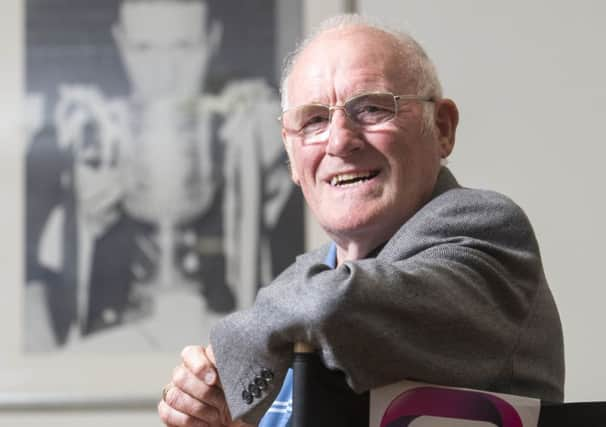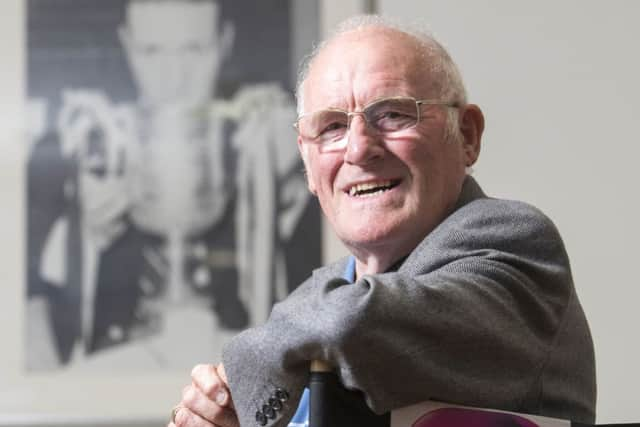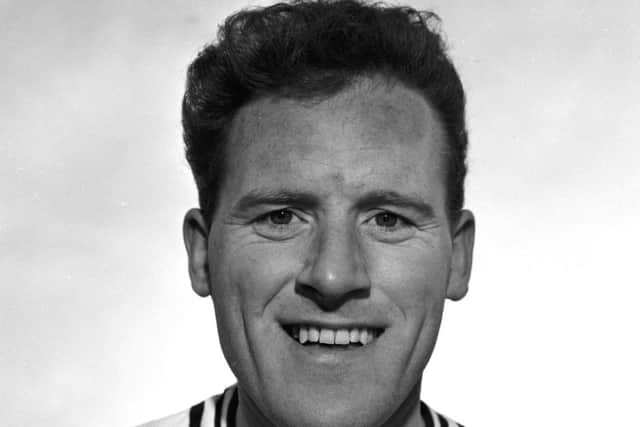Jock Stein influence still serves Harry Melrose


Stein, Melrose recalled yesterday, was a stickler for punctuality. “I am a great time-keeper now, and that was inbred in me under Jock, and I bet a lot of players would say the same thing,” said Melrose, who turned 79 last weekend.
“If you were more than five minutes late for training you got fined, and we were only on £15 a week at the time. And he would fine you as much as £2 for being late.
Advertisement
Hide AdAdvertisement
Hide Ad“Now, if I am told to be somewhere at 11am, I am there. It was inbred in us at the time. It has lived with me forever. It was just part of his good discipline.”


After being the subject of a round of interviews yesterday to help promote a new film on Stein, Melrose had to confess that he was now running late for an appointment with his wife. In order to explain this rare lapse, he might want to employ another of Stein’s gifts – that of craftiness.
Melrose chuckled as he remembered being phoned by Stein during his own five-year spell as Dunfermline manager in the late 1970s, and while his mentor was still at Celtic. “He was a great man and so easy to approach if you needed some advice,” said Melrose. “He was also very shrewd. He phoned me once during pre-season: ‘How would you like a pre-season game with Celtic?’ I said that would be great and he suggested that Wednesday night.
“I said that anytime was fine, we’ll play anytime, just you tell us the date. But he had an ulterior motive. There had been word about Kenny Dalglish moving on. He was said to be going here and going there, the press were at him [Stein] all the time. So he came through here for the game and then went away at half-time with Kenny Dalglish so he could sign for Liverpool. The game was a ploy to get the press off his back!”
Melrose was always learning from Stein, who he said made him a better player just by speaking to him. “He made everyone a better player, he improved every body,” he said. The winger arrived from Ibrox, where he was a reserve team player. “There was not much coaching, you went out and did your own thing,” he recalled. “And that is what we were doing here at East End before big Jock arrived.


“No disrespect to [predecessor] Andy Dixon, who signed us all. But he was not a football man in so much as he had not played the game at any level. He [Stein] spoke to you and told you where you were going wrong and where you could improve.
“I remember in a game I was dispossessed by the full-back a couple of times and at half-time he said: ‘It looks like you won’t get past the boy’. I was down at that, but he said: ‘look, you’re probably the best passer of a ball at East End Park, use your strengths and pass it’. I probably wasn’t the best passer but he said I was, and that made me feel good. He had that ability to get something out of you.”
With Dunfermline facing relegation when he arrived in March 1960, Stein inspired the team to six successive victories at the tail end of the season. They survived in the top flight and. within 12 months, had won the Scottish Cup, which meant European football arrived at East End Park and then became something of a fixture for the club in the 1960s.
Advertisement
Hide AdAdvertisement
Hide AdAccording to Melrose, this said everything about Stein’s inspirational qualities. He was hands-on, he recalled. “He never had a coach,” he added. “He was on the training ground all the time.” Melrose never heard him swear, and he rarely raised his voice. Stein was feeling his way as much as the players were as they entered into European competition for the first time.
Melrose, who had never flown before, recalled sitting in a communal bath when hearing Dunfermline had drawn St Patrick’s Athletic of Dublin in the preliminary round of the Cup Winners’ Cup. The players all “slipped under the water” with disappointment.
But compensation came the following season when they were draw with Everton, then known as the “Bank of England” for their policy of signing the best players. Word reached Stein of a headline in one paper that referred to Everton’s view of Dunfermline as “country cousins”. In what has now become time-honoured fashion, the manager wordlessly pinned this article to a wall in the corridor and the reaction of the players meant he was saved the bother of giving a team talk. The Scots won 2-1 on aggregate en route to a famous meeting with Valencia.
“Every European game meant you were learning a bit more, and he was learning a bit more, too,” said Melrose. Such knowledge helped create history in Lisbon, once Stein had moved on to Celtic. This is another, oft-told tale. However, it is not the whole story – far from it, in fact, as Melrose was happy to point out yesterday.
• Harry Melrose was helping preview purpleTV’s new documentary Jock Stein which airs on BBC Alba on Monday 9 June at 9pm.